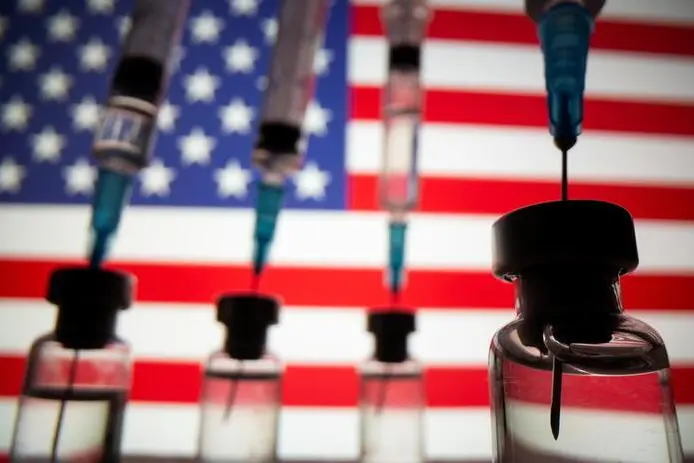PHOTO
(The author is a Reuters Breakingviews columnist. The opinions expressed are his own.)
NEW YORK - America’s new soft power is a vaccine glut. It made sense for rich nations to overinvest in developing and ordering shots to end the Covid-19 pandemic. The country will soon be drowning in excess vaccines. Secretary of State Tony Blinken pledges these shots won’t be traded for political favors. But liberally distributing its surplus around the world, coupled with boosting manufacturing of further shots, will still pay strategic and economic dividends. Vaccines are the opposite of a zero-sum game.
More than 40% of American adults have received at least one dose, the Centers for Disease Control and Prevention says, while Pfizer, Moderna and Johnson & Johnson are rapidly ramping production. Supply should exceed demand by the end of May. Yet the country has ordered enough from this triad to inoculate 170 million more people than its 330 million population, with outstanding orders for others.
This is a good problem to have. Washington can distribute the excess jabs for various reasons, including strategic and humanitarian – though it doesn’t have enough extra shots to do both.
Neighbors Mexico and Canada have given 6% and 16% of their population, respectively, at least one shot according to Our World in Data. They are America’s biggest export markets, accounting for about 40% between them, so having their economies back to speed would benefit American industry.
Vaccinating neighbors also means fewer infected people crossing the border. A stronger Mexican economy should reduce illegal immigration too. No wonder President Joe Biden agreed to lend them 4 million stockpiled doses of AstraZeneca’s vaccine, yet to be authorized in the States.
Containing China, an economic rival also engaged in vaccine diplomacy, is another goal. Beijing has promised shots of murky efficacy to scores of countries. Biden met with the leaders of Australia, India and Japan in March, and they committed to supply at least a billion doses to the region by the end of 2022. American know-how should prove useful for this effort.
True, many poorer nations haven’t even started vaccinating. And using vaccines for strategic goals rather than humanitarian ones might backfire. A recent U.S. pledge of $4 billion to Covax, an effort to vaccinate the world’s poor, may help somewhat. Upping this ante, and perhaps leaning on pharmaceutical firms to license production on favorable terms, if need be, would be even better.
CONTEXT NEWS
- Tony Blinken, the United States Secretary of State, said the United States would not trade Covid-19 vaccine shots for political favors, according to an April 6 report from CNN.
- The United States Centers for Disease Control and Prevention said that 40% of the U.S. population 18 and over had received at least one dose of a Covid-19 vaccine as of April 5.
- Separately, vaccine developer Moderna reached an agreement with contract drug manufacturer Catalent to expand production according to the Wall Street Journal on April 6. The expansion will help Moderna meet its goal of supplying an additional 100 million doses to the United States by the end of May, and another 100 million doses by the end of July.
(The author is a Reuters Breakingviews columnist. The opinions expressed are his own.)
(SIGN UP FOR BREAKINGVIEWS EMAIL ALERTS http://bit.ly/BVsubscribe | Editing by Rob Cox and Amanda Gomez) ((robert.cyran@thomsonreuters.com; Reuters Messaging: robert.cyran.thomsonreuters.com@reuters.net))





















